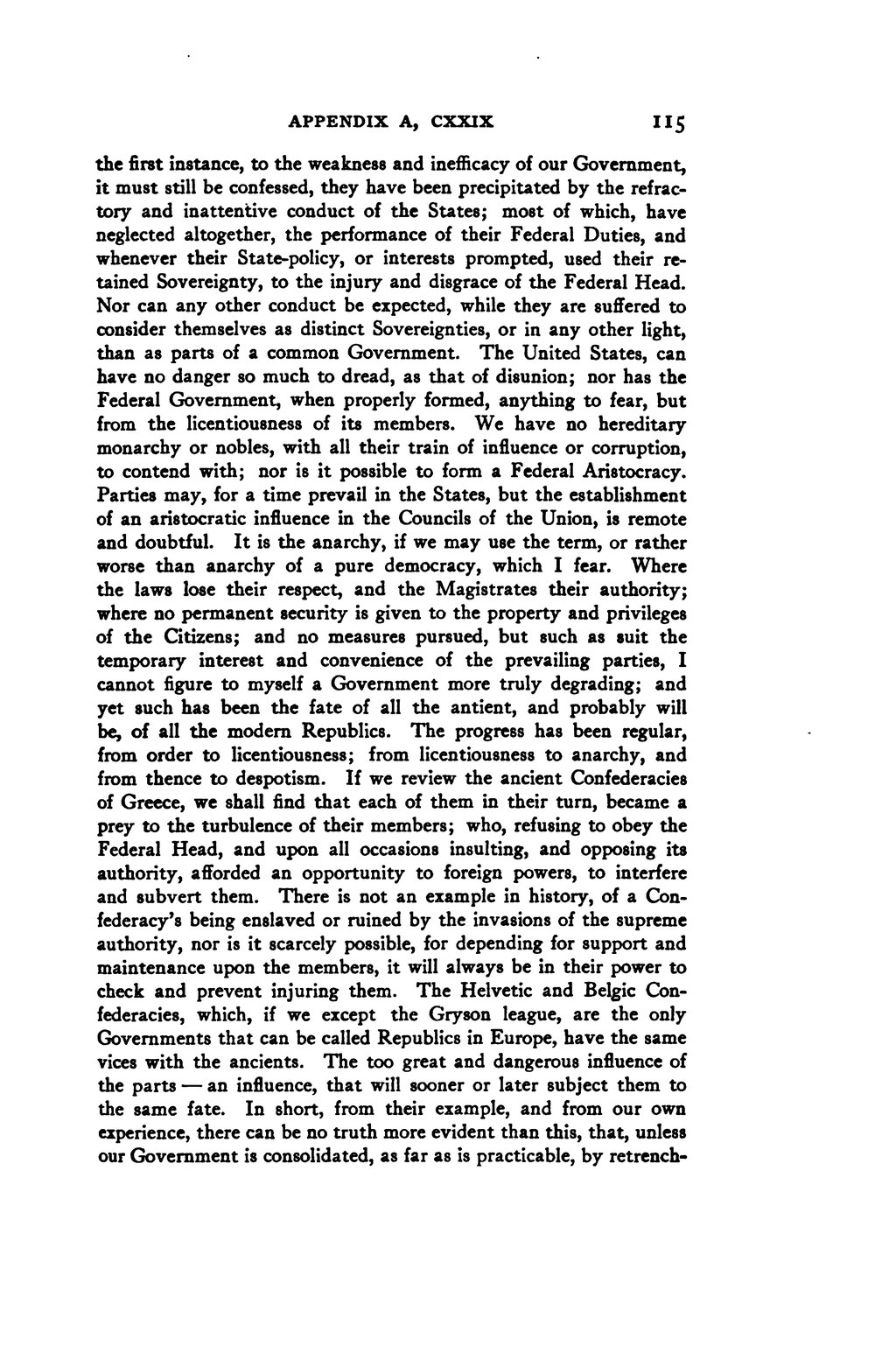the first instance, to the weakness and inefficacy of our Government, it must still be confessed, they have been precipitated by the refractory and inattentive conduct of the States; most of which, have neglected altogether, the performance of their Federal Duties, and whenever their State-policy, or interests prompted, used their retained Sovereignty, to the injury and disgrace of the Federal Head. Nor can any other conduct be expected, while they are suffered to consider themselves as distinct Sovereignties, or in any other light, than as parts of a common Government. The United States, can have no danger so much to dread, as that of disunion; nor has the Federal Government, when properly formed, anything to fear, but from the licentiousness of its members. We have no hereditary monarchy or nobles, with all their train of influence or corruption, to contend with; nor is it possible to form a Federal Aristocracy. Parties may, for a time prevail in the States, but the establishment of an aristocratic influence in the Councils of the Union, is remote and doubtful. It is the anarchy, if we may use the term, or rather worse than anarchy of a pure democracy, which I fear. Where the laws lose their respect, and the Magistrates their authority; where no permanent security is given to the property and privileges of the Citizens; and no measures pursued, but such as suit the temporary interest and convenience of the prevailing parties, I cannot figure to myself a Government more truly degrading; and yet such has been the fate of all the antient, and probably will be, of all the modern Republics. The progress has been regular, from order to licentiousness; from licentiousness to anarchy, and from thence to despotism. If we review the ancient Confederacies of Greece, we shall find that each of them in their turn, became a prey to the turbulence of their members; who, refusing to obey the Federal Head, and upon all occasions insulting, and opposing its authority, afforded an opportunity to foreign powers, to interfere and subvert them. There is not an example in history, of a Confederacy’s being enslaved or ruined by the invasions of the supreme authority, nor is it scarcely possible, for depending for support and maintenance upon the members, it will always be in their power to check and prevent injuring them. The Helvetic and Belgic Confederacies, which, if we except the Gryson league, are the only Governments that can be called Republics in Europe, have the same vices with the ancients. The too great and dangerous influence of the parts—an influence, that will sooner or later subject them to the same fate. In short, from their example, and from our own experience, there can be no truth more evident than this, that, unless our Government is consolidated, as far as is practicable, by retrench-
